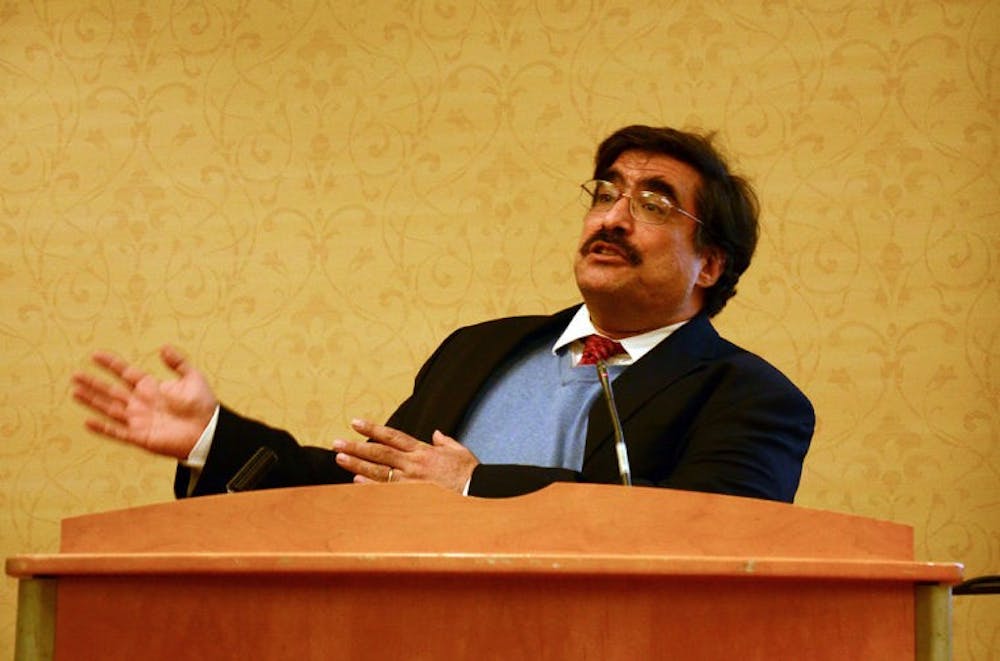No one is immune to climate change, said Seth Borenstein, a science writer for the Associated Press. Borenstein met with students, staff, and Athens residents Tuesday night in Baker University Center second floor to speak about climate change during his presentation, “Too Hot to Handle.”
Borenstein criticized large media outlets such as CNN, Fox News, and MSNBC for their lack of coverage of global warming and climate change.
Borenstein said that in the scheme of mainstream media coverage of climate change, Al Jazeera America covers much more than its fellow television counterparts, which cover disasters and tragedies more because they seem mysterious, sudden, and unstoppable, he said.
“Climate change is unemotional in many ways,” Borenstein said. “It’s lots of statistics. It’s lots of modeling and forecasts.”
Borenstein said television outlets often do not provide the audience with context when they report on large tragedies or events. Although CNN has been providing around the clock coverage of the disappearance of Malaysian Airlines Flight 370, he said about 400 people died due to climate issues on the day that the plane disappeared.
“CNN spent a minute and seven seconds on climate change in a single day,” Borenstein said. “I think they spent that much time clearing their throat about Malaysia Airlines.”
Borenstein also talked about his recent coverage of the Intergovernmental Panel on Climate Change, which uses information from 300 authors, 1729 expert reviewers, and more than 12,000 scientific publications.
A report IPCC recently released was compiled of 2610 pages, which listed possible effects of climate change, including worsening civil war, acidifying oceans and damaging the marine ecosystem and affecting the Arctic.
“No one is immune,” Borenstein said. “For the first time, it’s not just poor countries. It’s affecting rich countries as well.”
Borenstein left an impact on Rachel Kenneally, a freshman studying early childhood development, who said she was very unaware of a lot of the issues regarding climate change.
“I think it’s important to look at all these dynamics and viewpoints,” Kenneally said. “I think I learned quite a bit.”
Professor and Director of Environmental Studies for the Voinovich School of Leadership and Public Affairs Geoff Dabelko said Borenstein’s visit to OU was important because he is someone who is able to translate complex issues into understandable contexts for an audience, and that’s necessary for such an important issue.
“Climate change is something that will affect us all,” Dabelko said. “It’s complex. That complexity often means that we don’t grapple with it, but in fact, the complexity should mean that we want to tackle it.”
@tamaple
tm255312@ohiou.edu






